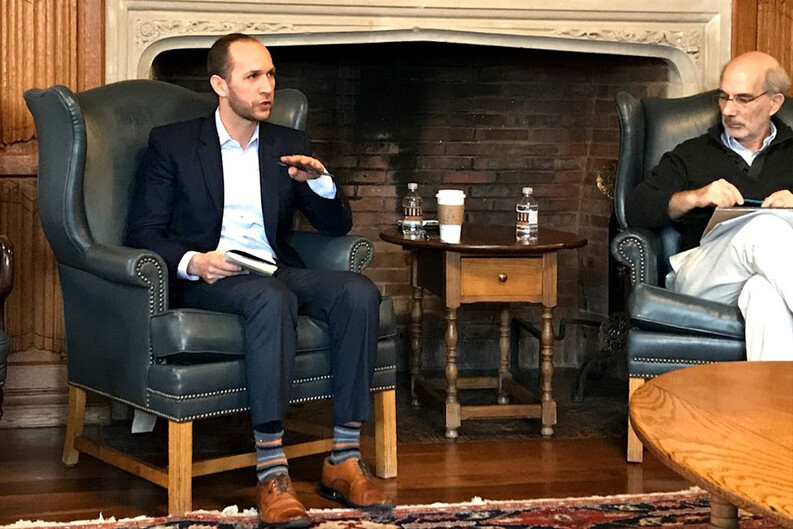Jonathan Horowitz Discusses Human Rights Violations in the “Counterterrorism Moment”

Since September 11, 2001, a heated debate has raged over the question of whether human rights or national security interests should govern policy, explained Jonathan Horowitz at the Schell Center’s February 22 Human Rights Workshop. Horowitz, a senior legal officer for the Open Society Justice Initiative (OSJI), thinks that this debate is misguided—that human rights and national security should not have to be competing interests.
But, as Horowitz went on to explain, national security policies of the last two decades have severely restricted or violated human rights: “Counterterrorism approaches that restrict human rights have become the norm,” he said, even though “limits on rights are meant to be exceptional.” Horowitz has spent much of the last decade fighting domestic, regional, and international policies limiting rights and freedoms in the name of security, and this work has presented unique challenges. As he explained, counterterrorism and other national security debates are often complex and shrouded in secrecy, which has made it more difficult for civil society and the public to understand and criticize national security policies. Islamophobia and other forms of demonizing communities and individuals have also made many people unsympathetic towards those who are most adversely impacted by national security laws, such as terrorist suspects. To Horowitz, the terrible end result is that “you have public support for human rights violations—you have people asking, ‘Why is my government not acting more harshly towards terrorist suspects?’”
Horowitz explained that OSJI is taking steps to address these issues. It is investigating the use of drone strikes and pushing legislation in the European Court of Human Rights to expose European nations’ coordination with the U.S.’s torture program, in order to discourage other nations from cooperating with such clandestine efforts. It is also focusing on standard-setting with regional and state governments: for instance, it is working with the African Commission to draft regional principles outlining what it would mean to comply with international human rights law, humanitarian law, refugee law, and other standards while combatting terrorism.
In OSJI’s work, Horowitz emphasized, it is not just relying on international human rights law to make progress. “Using multiple tools jointly can often be much stronger than using any one tool individually,” he said. “That’s a reason to engage in coalition-building. It’s very important to look to other fields—anti-war, anti-proliferation movements—to find people who are sympathetic and can help the work you’re doing from different angles.” He added that another reason to build coalitions is to resist the current suppression of civil society taking place across the world, a trend that was explored by several Human Rights Workshop speakers last semester.
Horowitz further recommended that human rights advocates be attuned to the various, broad ways in which states exploit laws that “may have been intended for terrorism activity, but are being used for religious discrimination or oppressing political opposition.” He brought up the drug war, the detention of migrants, the surveillance of Muslim communities, and the targeting of so-called ‘eco-terrorists4’ as examples of improper applications of counterterrorism laws. Again, Horowitz warned against normalization, which he considers to be a reason why governments have been able to expand the reach of national security laws in this way. But he was also hopeful that if human rights advocates challenged such limits on rights and freedoms, they could find a route to getting harsh counterterrorism laws “off the books.”
“It is possible to find successes in this work,” said Horowitz, noting Germany’s recent decision to stop sending weapons5 to countries involved in the war in Yemen. But, he added, “human rights lawyers and movements have largely been one, or two, or twenty steps behind state practices on this issue – that always puts us in the position of being reactionary.” Horowitz contended that to win this “cat and mouse game” – to successfully address and prevent human rights violations – human rights advocates have to be creative.


